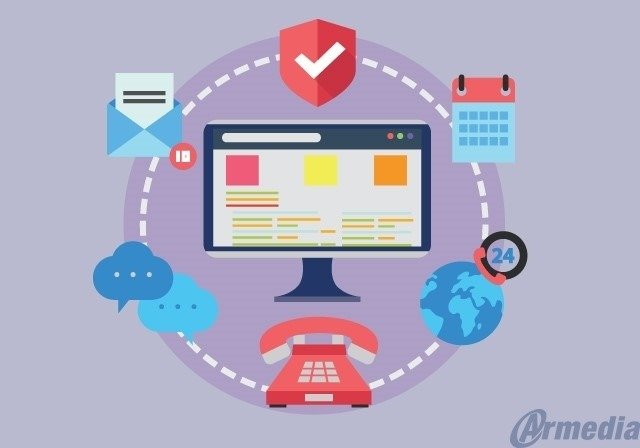Blockchain technology is revolutionizing industries by offering secure, transparent, and decentralized solutions. Initially developed for Bitcoin, blockchain has evolved beyond cryptocurrency to transform various sectors, including finance, healthcare, supply chain, real estate, and more.
With its ability to provide tamper-proof records, smart contracts, and trustless transactions, blockchain is solving critical challenges across industries. In this blog, we explore the top real-world use cases of blockchain, highlighting how businesses and governments are leveraging this technology for innovation and efficiency.
Use Cases of Blockchain: different Industries
-
Blockchain in Finance & Banking
Blockchain is disrupting the financial sector by enabling faster, more secure, and cost-effective transactions. Traditional banking systems involve intermediaries, which increase transaction time and costs. Blockchain eliminates these inefficiencies by providing real-time settlement, transparency, and fraud prevention.
Key Applications:
Cross-Border Payments: Companies like Ripple and Stellar use blockchain for near-instant international payments with lower fees.
Decentralized Finance (DeFi): Platforms like Aave and Uniswap allow users to lend, borrow, and trade without banks.
Smart Contracts: Automate transactions, reducing paperwork and human intervention in financial agreements.
-
Blockchain in Healthcare
The healthcare industry faces challenges like data security, patient record management, and supply chain transparency. Blockchain addresses these issues by ensuring tamper-proof medical records, secure data sharing, and counterfeit prevention.
Key Applications:
Electronic Health Records (EHRs): Blockchain enables secure, unified access to patient data across hospitals.
Drug Supply Chain: Platforms like MediLedger track pharmaceuticals, preventing counterfeit drugs from entering the market.
Clinical Trials & Research: Blockchain ensures data integrity in medical research, reducing fraud and errors.
-
Blockchain in Supply Chain Management
Supply chains involve multiple stakeholders, leading to inefficiencies, fraud, and lack of transparency. Blockchain provides real-time tracking, improved efficiency, and fraud prevention by maintaining an immutable ledger of transactions.
Key Applications:
Product Traceability: Companies like IBM Food Trust use blockchain to track food from farm to table, improving food safety.
Anti-Counterfeiting: Luxury brands and pharmaceuticals use blockchain to verify product authenticity.
Automated Smart Contracts: Ensure trustless agreements between suppliers and buyers, reducing disputes and delays.
-
Blockchain in Real Estate
The real estate industry suffers from slow transactions, high costs, and fraud risks. Blockchain eliminates intermediaries, reduces paperwork, and increases transaction transparency.
Key Applications:
Tokenized Real Estate: Platforms like RealT and Propy allow fractional ownership of properties, making investments more accessible.
Property Transactions: Smart contracts automate buying, selling, and leasing, reducing time and legal fees.
Land Registries: Governments use blockchain for secure and immutable property records, preventing fraud and land disputes.
-
Blockchain in Retail & E-Commerce
Blockchain enhances security, transparency, and customer trust in online shopping by preventing fraud, ensuring product authenticity, and enabling secure payments.
Key Applications:
Secure Payments: Crypto payments reduce fraud and offer low-cost transaction fees.
Loyalty Programs: Blockchain-based rewards and loyalty points prevent fraud and duplication.
Supply Chain Transparency: Retailers like Walmart and Amazon use blockchain to track product origins and prevent counterfeiting.
-
Blockchain in Government & Public Services
Governments are leveraging blockchain for identity management, voting, tax collection, and land registry to enhance transparency and reduce corruption.
Key Applications:
Digital Identity Verification: Blockchain secures citizen records and prevents identity fraud.
Voting Systems: Countries like Estonia and the USA are testing blockchain for tamper-proof elections.
Tax & Revenue Collection: Blockchain reduces tax fraud by ensuring transparent and traceable transactions.
-
Blockchain in Energy & Sustainability
Blockchain is playing a crucial role in decentralizing the energy sector by enabling peer-to-peer energy trading, carbon credit tracking, and transparent supply chains.
Key Applications:
P2P Energy Trading: Platforms like Power Ledger allow homeowners to buy and sell excess solar energy.
Carbon Credit Trading: Blockchain ensures transparent tracking of carbon emissions to promote sustainability.
Grid Management: Blockchain optimizes energy distribution, reducing inefficiencies.
-
Blockchain in Media & Entertainment
The entertainment industry is using blockchain for royalty tracking, content monetization, and copyright protection.
Key Applications:
Music & Video Streaming: Blockchain enables direct artist-to-fan payments, eliminating middlemen.
Digital Rights Management: Smart contracts ensure fair revenue sharing for content creators.
NFTs & Digital Art: Platforms like OpenSea and Rarible allow artists to tokenize and sell digital assets.
-
Blockchain in Education & Certification
Education institutions are using crypto wallet development to secure certificates, verify academic records, and prevent degree fraud.
Key Applications:
Digital Diplomas: Universities issue blockchain-based certificates, reducing fake degrees.
Skill Verification: Employers verify candidate qualifications instantly via blockchain.
Decentralized Learning Platforms: Blockchain supports secure and transparent e-learning.
-
Blockchain in Insurance
Insurance companies are integrating blockchain to automate claims processing, prevent fraud, and improve customer experience.
Key Applications:
Automated Claims Processing: Smart contracts trigger instant claims payouts.
Fraud Prevention: Blockchain eliminates duplicate claims and false insurance reports.
Policy Management: Secure records ensure transparency between insurers and customers.
Future of Blockchain Use Cases
Blockchain technology continues to evolve, with emerging use cases in metaverse development, Web3 applications, and AI integration. As more industries adopt blockchain, we can expect innovations in data security, financial transactions, and decentralized governance.
Conclusion
AI Blockchain Development Company is reshaping industries by offering security, efficiency, and transparency. From finance and healthcare to real estate and energy, businesses and governments are leveraging blockchain to improve operations and trust. As adoption grows, the potential for blockchain innovation remains limitless.









